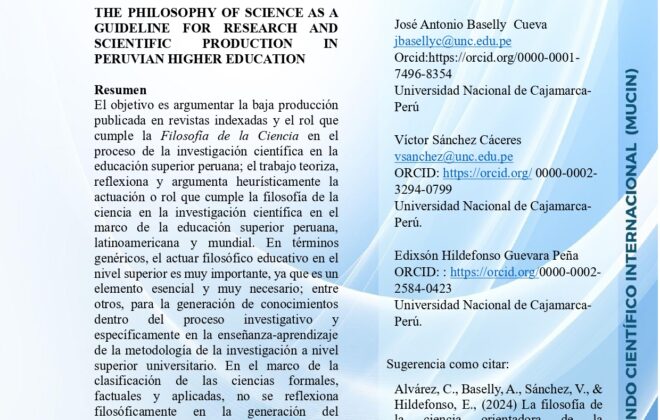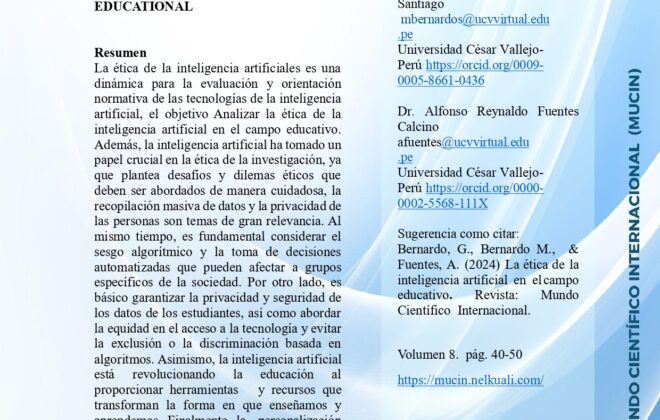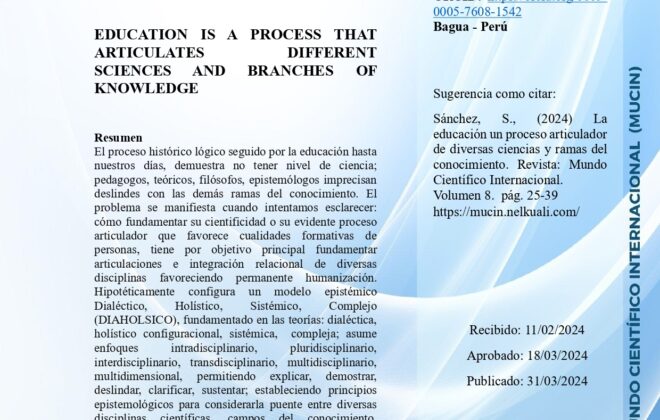Filosofía de ciencia y la investigación científica.
Filosofía de ciencia y la investigación científica.
Resumen
El objetivo del ensayo fue aborda la filosofía de la ciencia e investigación, destacando cómo se desarrolla, valida y caracteriza el conocimiento científico. Se enfatiza una metodología empírica, sistemática, basada en observación y experimentos rigurosos, garantizando hallazgos científicos fundamentados en evidencia verificable. Además, la naturaleza iterativa de investigación científica pone de relieve la importancia de la flexibilidad para guiar el desarrollo de nuevos conocimientos. Como criterio básico para distinguir entre ciencia y lo que no es, el criterio de falsabilidad de Karl Popper establece que una hipótesis debe poder refutarse experimentalmente. Además, se explora las teorías sobre revoluciones y paradigmas científicos (Thomas Kuhn), destacando cómo nuevas formas de pensar sobre diversas cosas pueden conducir a importantes avances en la comprensión de la ciencia. Asimismo, se tiene en cuenta el debate entre realismo y anti-realismo, abordando la ética investigativa, haciendo hincapié en cuestiones de responsabilidad moral, normas éticas y distribución equitativa de beneficios o riesgos. En conclusión, la conducta crítica y moralmente responsable, que tiene un impacto beneficioso en la sociedad, se basa en gran medida en consideraciones filosóficas de la ciencia. Con el fin de garantizar que la expansión del conocimiento repercuta favorablemente en esta sociedad respetando al mismo tiempo normas éticas rigurosas, se subraya la importancia filosófica en la valoración crítica de dicha actividad científica.
Palabras clave:
filosofía, ética, investigación, conocimiento científico.
Abstract
The objective of the essay was to address the philosophy of science and research, highlighting how scientific knowledge is developed, validated, and characterized. An empirical, systematic methodology based on rigorous observation and experimentation is emphasized, guaranteeing scientific findings based on verifiable evidence. In addition, the iterative nature of scientific research highlights the importance of flexibility to guide the development of new knowledge. As a basic criterion for distinguishing between science and non-science, Karl Popper’s falsifiability criterion states that a hypothesis must be experimentally disprovable. In addition, the theories of scientific revolutions and paradigms (Thomas Kuhn) are explored, highlighting how new ways of thinking about various things can lead to important advances in the understanding of science. It also considers the debate between realism and anti-realism, addressing research ethics, emphasizing issues of moral responsibility, ethical standards and equitable distribution of benefits or risks. In conclusion, critical and morally responsible conduct, which has a beneficial impact on society, is largely based on philosophical considerations of science. In order to ensure that the expansion of knowledge has a favorable impact on this society while respecting rigorous ethical standards, the philosophical importance in the critical appraisal of such scientific activity is emphasized.
Keywords:
philosophy, ethics, research, scientific knowledge.




